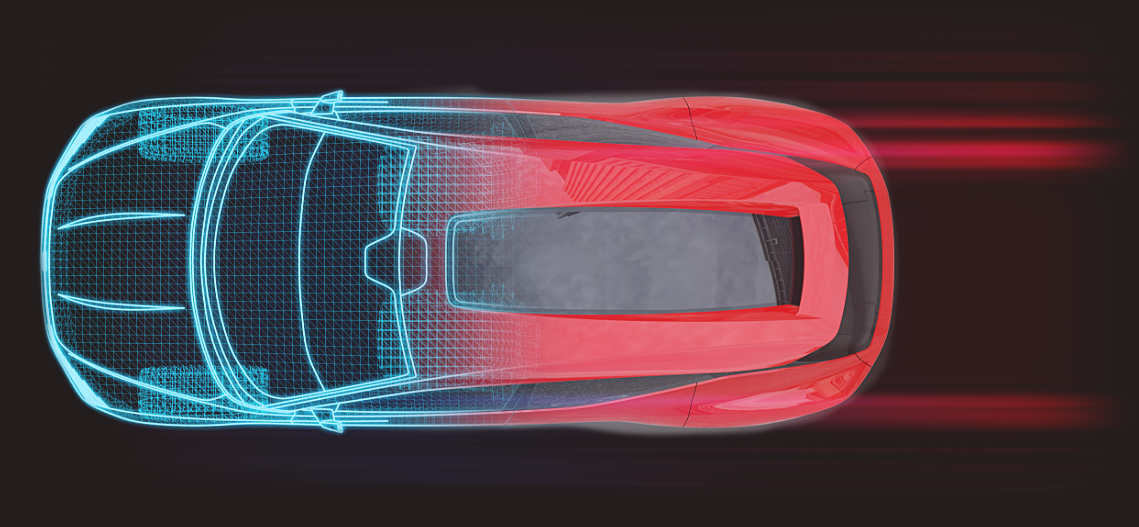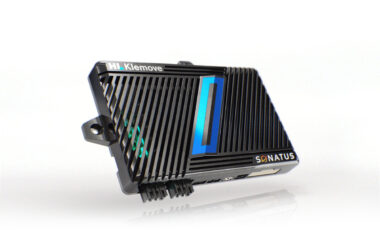Sonatus Foundation - Vehicle Data Services
Enable easier and
more efficient vehicle
data access from connected cars
Sonatus Foundation’s Data Services enables automakers to make connected car data management, access and storage easier, more secure and cost-efficient.

Network Shared Storage (NSS)
As the number of ECUs (Electronic Control Units) in vehicles increases, so does the amount of vehicle data that is generated. Since not all the data generated in connected vehicles can or should to be uploaded to the cloud, adequate local storage is critical. However, expanding individual ECU storage is costly, and hardware limitations restrict how much data they can store. Moreover, securing storage of vehicle data distributed across multiple ECUs can be challenging.
Network Shared Storage (NSS) addresses these issues by allowing auto-makers to centralize connected car data storage and manage it dynamically from the cloud.
Secure and cost-effective in-vehicle storage: Centrally managed storage and file sharing system is more secure and cost-effective than current distributed model
Hardware and storage media-agnostic: Works across a wide variety of storage media types and formats, no special hardware or driver required
Supports a wide array of use cases: Provides dynamically adjustable storage allocation for supporting diverse applications such as –
- Storing dash cam footage and vehicle’s location that can be used for insurance carriers to process claims for their customers
- Superior data capture technique compared to existing insurance company approaches of deploying gps trackers or similar technologies to monitor a vehicle’s location and other vehicle information
- Storing vehicle data in bulk for diagnostics and vehicle improvement that can be accessed on-demand or over WiFi for cost efficiency
- Storing vehicle-wide OTA images to apply when appropriate
- Flexible storage and access options including network file system (NFS) and object store
- Thin provisioning and usage-based storage management with
- Virtual partitions and file systems to adjust storage allocation
- Options to user higher compression for less frequently accessed vehicle data
- Automatic purging of aged vehicle data
- Centralized vehicle data protection with multi-level access control and encryption
- Flexible storage media options, including eMMC and NVMe
- Seamless cloud integration for real-time storage policy updates, health and activity monitoring, vehicle data synchronization and backup, and much more
Hardware and storage media-agnostic: Works across a wide variety of storage media types and formats, no special hardware or driver required
Supports a wide array of use cases: Provides dynamically adjustable storage allocation for supporting diverse applications such as –
- Storing dash cam footage and vehicle’s location that can be used for insurance carriers to process claims for their customers
- Superior data capture technique compared to existing insurance company approaches of deploying gps trackers or similar technologies to monitor a vehicle’s location and other vehicle information
- Storing vehicle data in bulk for diagnostics and vehicle improvement that can be accessed on-demand or over WiFi for cost efficiency
- Storing vehicle-wide OTA images to apply when appropriate
- Flexible storage and access options including network file system (NFS) and object store
- Thin provisioning and usage-based storage management with
- Virtual partitions and file systems to adjust storage allocation
- Options to user higher compression for less frequently accessed vehicle data
- Automatic purging of aged vehicle data
- Centralized vehicle data protection with multi-level access control and encryption
- Flexible storage media options, including eMMC and NVMe
- Seamless cloud integration for real-time storage policy updates, health and activity monitoring, vehicle data synchronization and backup, and much more
Log Analysis Service
More ECUs means more vehicle information and more log files. Log Analysis Service streamlines real-time risk and anomaly identification with consolidated, automated in-vehicle log analysis.
Streamline diagnostics: Streamlines troubleshooting and diagnostics by quickly identifying anomalies
Prevent critical failures: Reduces the impact of faults catching issues before they become critical
Analyze at scale: Allows analysis to be done at scale and in real-time across millions of vehicles
- Inspect vehicle logs at run-time to quickly identify anomalies and malfunctions
- Supports multiple types of queries such as “include”, “exclude”, Regex, and more.
- Supports composite queries that combine results from multiple log files
- Allows results-based local archiving or reporting to the cloud for further analysis
- Provides user-defined alerts based on query results
- Supports event monitoring, configurable log reporting and visualization
- Enables fleet-wide anomaly detection and analysis
Prevent critical failures: Reduces the impact of faults catching issues before they become critical
Analyze at scale: Allows analysis to be done at scale and in real-time across millions of vehicles
- Inspect vehicle logs at run-time to quickly identify anomalies and malfunctions
- Supports multiple types of queries such as “include”, “exclude”, Regex, and more.
- Supports composite queries that combine results from multiple log files
- Allows results-based local archiving or reporting to the cloud for further analysis
- Provides user-defined alerts based on query results
- Supports event monitoring, configurable log reporting and visualization
- Enables fleet-wide anomaly detection and analysis
Dynamic DBC
The vehicle CAN database, or DBC, stores descriptions for messages, signals and parameters exchanged between Electronic Control Units (ECUs), which are used for various diagnostics and vehicle data related applications. Traditionally, updating the DBC for new information or for new vehicle models is onerous, requiring costly and time-consuming firmware updates.
Sonatus Foundation’s Dynamic DBC feature presents an innovative solution for updating a vehicle’s CAN database dynamically, at any point in the vehicle lifecycle. This feature makes it easy to update the DBC with new information, correct any errors, or make changes to adapt to new vehicle models.
Diagnostics Manager
Sonatus Foundation’s Diagnostics Manager centralizes the management of diagnostics on ECUs on both CAN and Ethernet networks within vehicles. It provides centralized control over diagnostic sessions running on Diagnostics over IP (DoIP) for Ethernet ECUs and UDS for CAN ECUs.
Drive continuous innovation with insights from data collected dynamically over the vehicle lifespan.
Learn MoreRelated Resources

HL Klemove and Sonatus announce collaboration to enable next-generation E/E architecture for software-defined vehicle applications

Data is the new…everything
